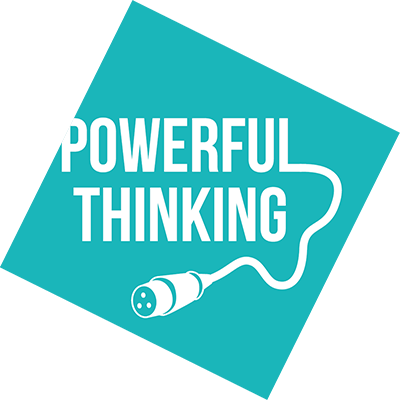About this Factsheet
The purpose of this factsheet is to help festival organisers to either choose a new power supplier, or to ask the right questions of an existing supplier when considering energy efficiency. This factsheet has been produced in partnership with Pearce Hire, a member of the Powerful Thinking steering group, with both the festival organiser and supplier perspectives in mind. Experience shows that a good partnership helps to achieve the greatest reductions in fuel and emissions: the case study of Cambridge Folk Festival shows this in action.
Appointing a new supplier
When considering which power supplier to appoint for your event or show it is worth bearing in mind the following criteria. Firstly, you must satisfy yourself that they are able to do the job efficiently, reliably, safely and to meet the specification within a reasonable budget. If so, the next questions are:
- Do they have a track record for fuel and emissions reductions with clients and are they able to substantiate this?
- What methods / techniques do they use as a company to reduce their carbon footprint?
- Can they offer monitoring and a detailed post-event report?
- What standard strategies do they have in place to reduce fuel usage and excess transport etc.?
- What energy efficient equipment do they have? E.g. LED festoon and flood lights, hybrid generators, solar arrays, automatic switches for daylight hours etc.
- Would they be happy to enter in to a long-term contract over several years so that you can both work together on a plan to reduce fuel consumption and emissions over a set period?
- Would they be happy to sign a fixed-fee contract including fuel to incentivise fuel savings?
Working with your supplier
When you are happy with the of the above and have appointed the supplier:
- Ensure that the contract includes efficiency and monitoring, and reflects expectations – see Factsheet #6: Five Tips for Smart Energy Contracts
- Involve them in the planning stages from day one: it’s no good doing a great site design, booking the acts, stage, PA lighting, toilets and concessions, then just telling the power supplier to power it all up – by then it’s too late. A good supplier will be keen to advise from day one and the placing of key energy design elements can result in significant power reductions, fuel consumption and subsequently emissions. Both onsite and electrical system design are critical. See below an example of how an efficient system design can reduce equipment, fuel use, costs and emsisions:
Example of a fuel efficient system design
System put forward to suit production plan:
2 x 200 kVA on the main stage – 1 x 24hrs
1 x 60 kVA on production -–24hrs
2 x100 kVA on concessions – 24hrs
1 x 25Kva on toilets & Festoon – 24hrs
1 x 60kva on comedy stage – 24hrs
New efficient system design
With clever system design, it may be possible to install a centrally located ‘generator farm’ to replace the above production plan with:
3 x 200 kVA
1 x 100 kVA
If fully synchronised and load sharing, the 3rd 200 kVA set could be set to switch on ‘on demand’ only. When the show is shut it may be possible to run everything from the (24hr)100 kVA set, as it would only be powering lights, fridges, amplifiers and sound desks etc.
- Pass all the consumer details on to your power supplier so that they can gather accurate information of what they need.
- Be realistic: Don’t expect massive reductions in the first year, if it is an existing event and a new supplier then give them chance to get to grips with the event, it’s very hard to radically change things that have been the same way for years. In this case the first year should be an assessment year; meet with your supplier and go around the site to look at ways of improving your power systems, get your supplier to monitor fuel usage and load over the event and then get them to come back with a post-show report on how to achieve various reductions. See Factsheet #21 – Advanced Power Monitoring Resource Pack: Measuring Power Factsheet & Recording Template for more details.
- View your supplier as an environmental partner, working together to achieve significant reductions in fuel consumption and emissions if you do this you will be surprised at what you can achieve!
What can I ask my supplier?
Not everyone is an energy expert. Below are some questions to guide initial conversations with your supplier and make sure you’re heading in the right direction.
- Based on the previous year (if applicable), do they think loads could be combined with changes to generator locations to achieve fewer generators?
- Based on previous experience, what equipment do they advise against in order to achieve reductions in demand?
- What information is actually useful to them? So that you can include requests for it in traders documentation to more accurately assess demand. See #19 – Working Out Energy Requirements for Concessions for more details.
- Where can hybrid or smaller generators be employed to reduce fuel consumption overnight?
- Can they use LED festoon?
- Can they use at least a percentage of biodiesel?
- Ask your supplier if they are using EN 14214 certified fuels, which guarantees compliance with hardware warranties.
- When using biodiesel make sure it is locally or regionally sourced WVO biodiesel. See Factsheet #8 – Pros and Con of Low Energy Carbon Types for more details.
